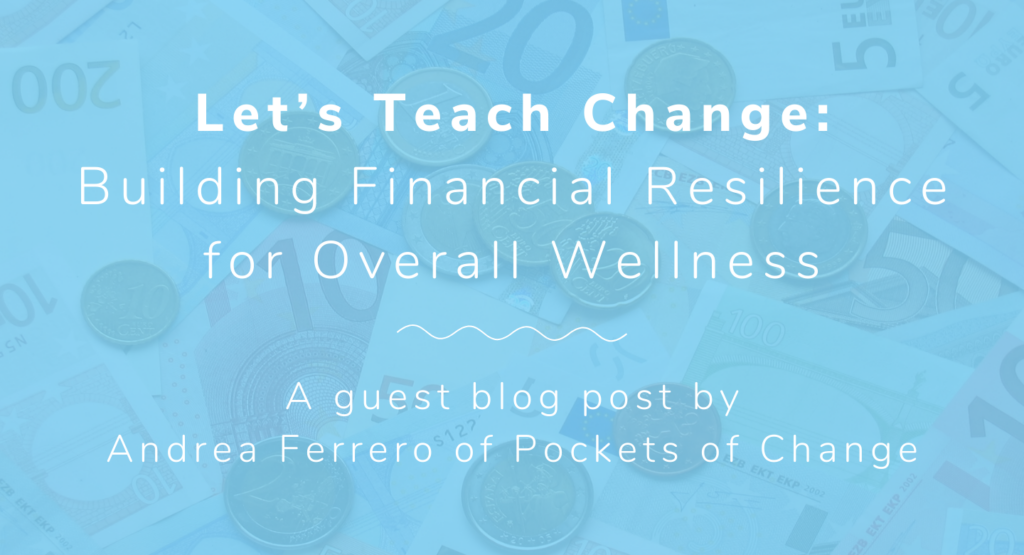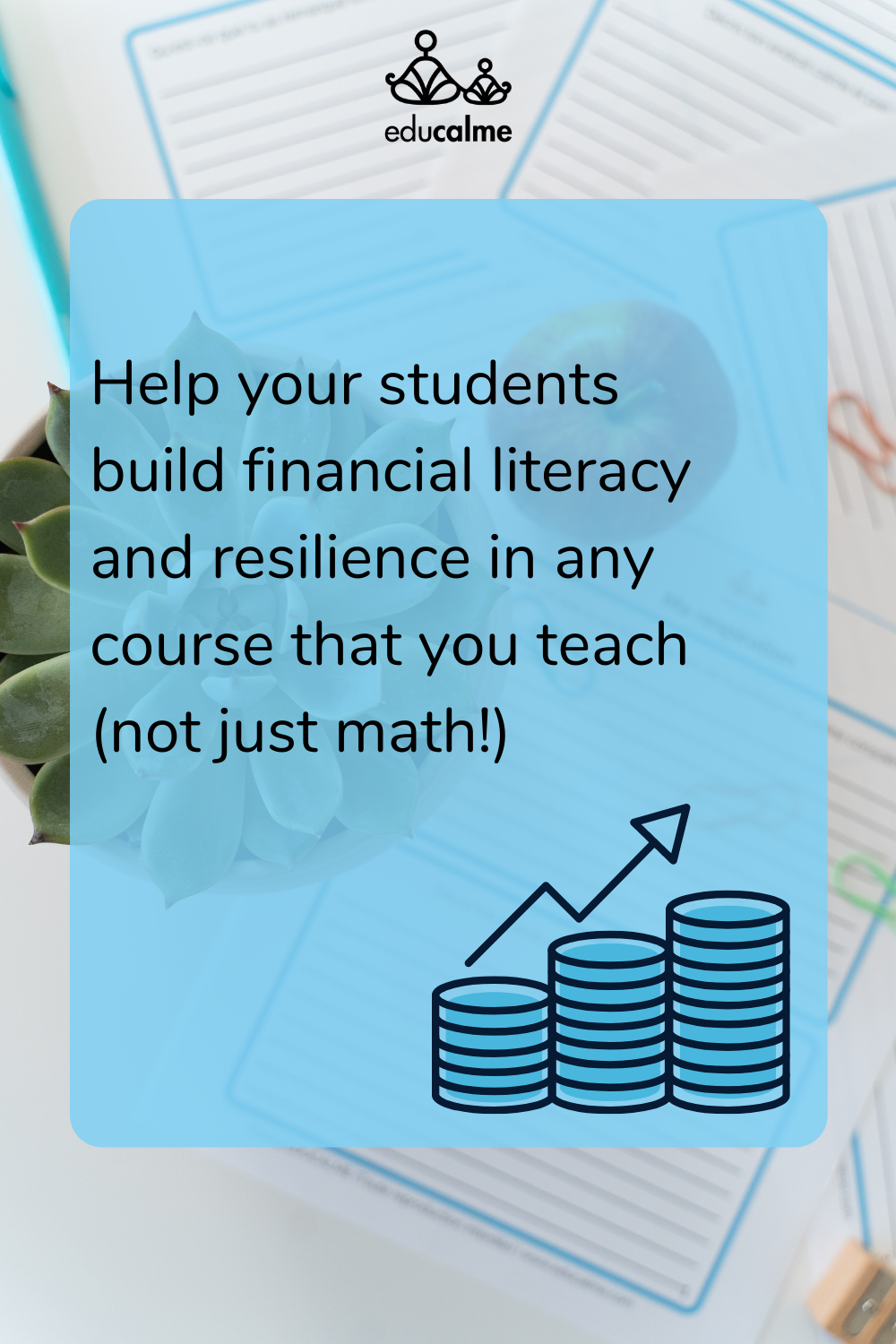Money can bring joy or cause stress!
Our finances are tied to our emotional and physical wellbeing. Yet, many of us didn’t learn much about personal finance in school.
In this episode of The Balanced Educator Podcast, we’ve invited Andrea Ferrero of Pockets of Change to share how we can help our students build financial literacy and resilience in any course that we teach (not just math!).
Subscribe to The Balanced Educator Podcast so you don’t miss our upcoming episodes: iTunes | Spotify | Google Play

How many of you really love budgeting? Yeah, me neither. It’s something I learned to do through mistakes, missteps, and way too much worry. You’re not alone if you think it’s difficult or an obligation like brushing teeth.
Studies show that thinking about money is stressful and talking about it is even more stressful. We form our relationship with money around age five the same time our early literacy skills are setting the stage for future success or challenge. Unlike reading skills, families are not receiving support and encouragement in having financial conversations and as educators we’re not receiving training or resources to foster those intergenerational learning moments. We have the opportunity to change that and get more comfortable with money in our own lives in the process.
Almost two decades ago, I stepped into my first classroom with a $50 supply budget. Creativity out of necessity inspired me to start a classroom store and begin exploring teaching entrepreneurship. I co-founded Pockets Change to make financial education more accessible, reaching the communities that are often overlooked. We build financial resilience through Hip Hop pedagogy with K-12 & college students, parents, educators.
Understanding our finances impacts more than our wallets, it gives us the skills to thrive. Early and ongoing financial education has tremendous power to increase intergenerational outcomes including the skills to manage decision-making, navigate the unexpected, and chart the path to reach goals consistently. Now more than ever, financial education is a tool for self-care and social justice.
So where do we start, financial education is about more than numbers, it’s crucial to develop an understanding of our relationship with money. We begin forming our beliefs, attitudes, and behaviors around money in early childhood. These tendencies inform life-long decision-making. Check out our money personality quiz for yourself and with students to start a conversation.
When it comes to looking at our money in action. One of the best pieces of advice I’ve heard came from a high schooler who said, “if I don’t create a plan for my money, it will have a plan for me.” Our curriculum goes beyond basic budgeting to creating a spending plan that focuses on personal values. When we move away from arbitrary formulas it allows us to create a budget that works for our lives and prioritizes what matters most to us. Whether you’re 6 years old or 60, talking through our values is a powerful way to plan for the future and take action in the present. Check out our Spending Values Matrix and create your own plan by visiting: http://www.pocketschange.com/spending-values
Perhaps the most powerful thing we can teach our students about money is to ask questions and create conversations. Money is still a taboo topic for many and the result is that we end up feeling wrong and alone in dealing with financial decision-making. We’ve had a six year old walk into a workshop and declare she was “bad at money”, by the end of the day she was discussing ways to make money with a sticker business. We want students to know that money is a tool and that we can all make finance personal.
If you’re interested in more tips and tools for talking and teaching about money, sign up for our monthly newsletter. http://www.pocketschange.com/newsletter
